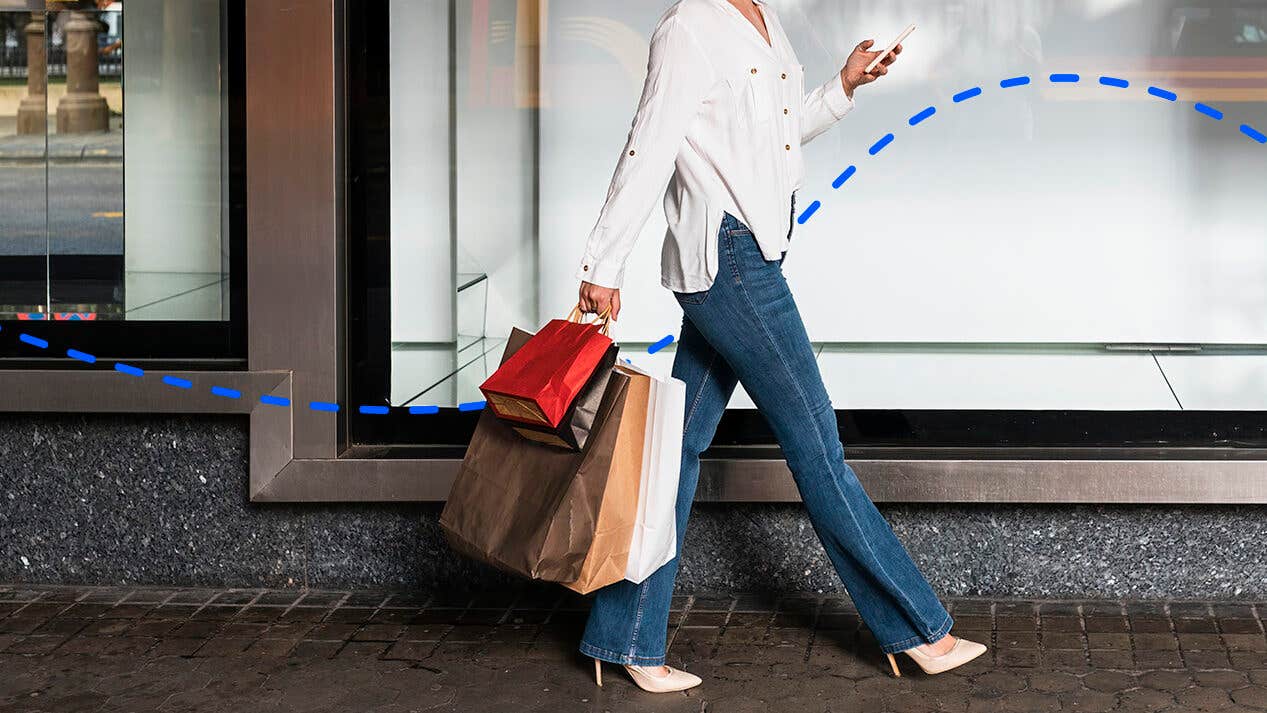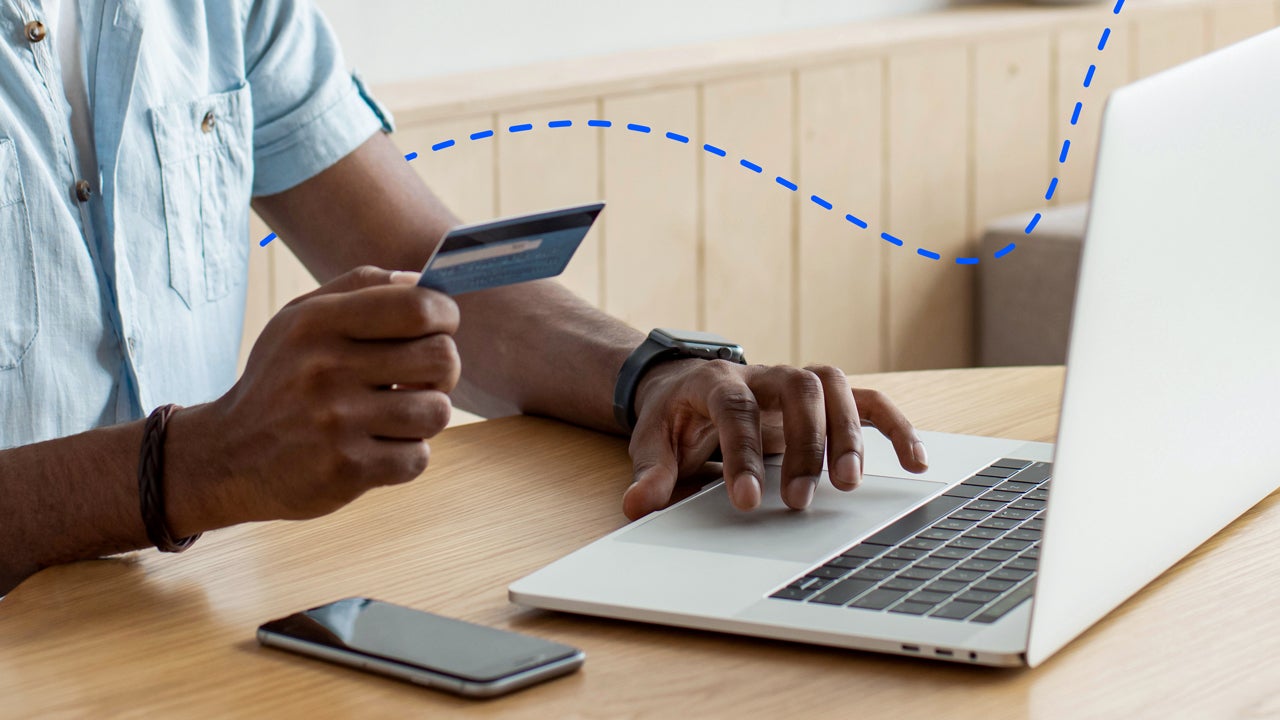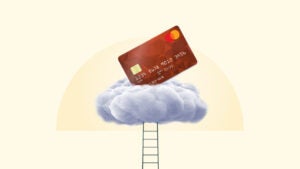Do you spend more with a credit card?




You may be familiar with the old adage “neither a borrower nor a lender be.” But borrowing and repaying responsibly can actually work to your advantage when it comes to credit cards.
Using a credit card responsibly by keeping your spending to a minimum and making on-time payments each month shows financial institutions you’re capable of managing your money and can be trusted with their money in the future should you ever need a higher credit limit or a loan.
Charging expenses on credit cards, however, could also open the door for overspending and ultimately lead to an unmanageable debt balance. Here’s what you need to know about paying with plastic.
Psychology of credit cards
On average, Americans carried a credit card balance of $5,910 in 2022. When it comes to credit cards, you might find that resorting to them as your primary payment method can remove the feeling that comes with forking over cold, hard cash. You might lose track of how much you’re spending when you can’t physically see how much you’re spending.
According to University of Toronto Researcher Dilip Soman, those who have a history of using credit cards as a form of payment tend to overspend more than those who have a history of paying with cash or checks. And a study by the Massachusetts Institute of Technology finds that buying with credit cards activates the brain’s rewards section, motivating people to spend more. However, it’s important to remember that keeping tabs on your spending is key to making sure you don’t overdo it and receive a bill that could throw your budget off balance.
If you want to set yourself up for success, set spending alerts on your account that will notify you once you’ve spent a certain amount. You can also automate your monthly payment so that you don’t accidentally forget to pay your bill and regret it later when you see your credit score has been knocked down a few points.
Benefits of credit cards
Credit cards, when managed responsibly, can be a valuable financial tool for making larger payments more manageable, earning rewards and building your credit so you qualify for lower interest rates on future loans. Whether you’re a jetsetter looking to save on your next adventure, or you just want to earn some money back on your regular expenses, using a credit card that’s tailored to your spending habits can be incredibly rewarding and save you a lot of money in the long run.
If you already have a few debit cards and are wondering why you may want to add a credit card to your wallet, here’s a look at how credit cards differ from your traditional debit card.
| Credit Cards | Debit Cards |
|---|---|
| Funds can be used to spread purchases over time, even if you don’t have that money readily available at the time of purchase | Funds are drawn directly from a checking account |
| Builds credit history | Does not build credit history |
| Can lead to debt spiral if not managed properly | Preferable for those who want to avoid debt accumulation |
| Interest applies if balance is carried over from month to month | No interest charges |
| Requires signature to complete transaction | Requires pin to complete transaction |
| Limited liability for fraudulent purchases | You could be liable for fraudulent purchases |
| Fees include late, return payment, balance transfer, cash advance and/or foreign transaction fees | Fees include overdraft and out-of-network ATM fees, as well as fees for using your PIN during transactions |
Overall, the right type of credit card will vary from consumer to consumer, but if you hope to reach some of your bigger financial milestones, like purchasing a vehicle, buying a home or borrowing money to start a business, you’ll need a positive credit history to do so. That begins with showing lenders that you know how to use a credit card wisely. A few expenses you might want to charge on your card:
- Appliances or electronics: Using a 0 percent APR credit card for these purchases will allow you to spread out this large payment over time.
- Rental cars or hotel accommodations: Typically, these merchants will require a credit card to cover the cost of incidentals.
- Online purchases: Because credit cards usually have more purchase protections in place than debit cards, you may want to consider using them as a primary payment method for all online purchases.
- Purchases made abroad: Credit cards are pretty widely accepted all over the world. When traveling, you’ll want to make sure you have at least one credit card with you for all of your purchases. It’s also a safer alternative to carrying a large amount of cash. Just remember to notify your credit card company that you’ll be abroad so you don’t hit any roadblocks once you arrive at your destination.
Credit cards versus cash
The previously mentioned MIT study about how the brain reacts to credit card spending finds that credit cards incentivize consumers to “step on the gas” and spend more than they would by using cash. People are also inclined to tip more and make more impulse buys than when they pay with cash.
A 2016 study by the Federal Reserve Bank of Boston finds that the average value of a credit card transaction was $57, versus an average value of $22 for a cash transaction. This means consumers were spending 160 percent more on a credit card transaction than they were on cash transactions. It could be that people are also turning to cards for making bigger purchases with an eye to credit card rewards.
In any event, fewer people are turning to cash for their spending needs, according to a study by the Pew Research Center. Younger generations feel less of a need for cash, the study finds, considering that only 45 percent of those under age 50 reported that they always had cash on hand, compared to 71 percent of those older than 50.
What should I consider when spending on a credit card?
Before you swipe your card at the register, you’ll want to take a few factors into consideration. Pay close attention to the fine print on your credit card terms — you’ll want to know what your interest rate is. That’ll determine how much it’ll cost you to carry a balance on your card. And your credit line will tell you how much credit you have available to spend. However, most experts recommend keeping your credit utilization ratio (how much you’re spending compared to the amount of credit still available) below 30 percent.
The key to building and maintaining a good credit score is to keep your spending below that 30 percent threshold, and make sure that you’re only using your credit card to pay for purchases that you know you’ll be able to pay off by the time your bill is due. Carrying a balance from month to month can cost you over time and a late payment will likely ding your credit score.
Also, don’t forget to keep track of your card statement and look at your transactions to make sure they are all legitimate. This will help you be vigilant about fraudulent transactions. You can also keep track of your spending habits this way.
The bottom line
Credit cards can be a useful financial tool. By practicing a few good habits when using your credit card, you can ensure that you’re able to build a positive credit history for your long-term financial goals and give yourself a little extra spending power right now. However, you shouldn’t overspend when you use your card just because you don’t feel the immediate pain of parting with your cash for purchases.
Why we ask for feedback Your feedback helps us improve our content and services. It takes less than a minute to complete.
Your responses are anonymous and will only be used for improving our website.




